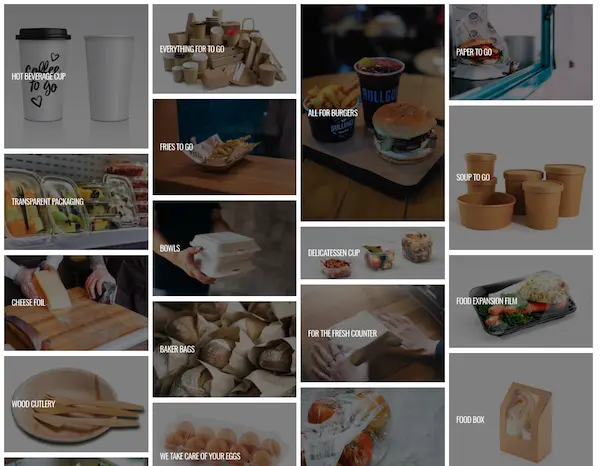How has your consumption of certain materials changed over time, and what influenced this change?
» Packaging- Shifts towards sustainability have reduced the use of single-use plastics in favor of biodegradable materials.
- Advancements in technology have increased the use of recyclable composites and reduced reliance on traditional materials like wood and glass.
- Public awareness and regulations have spurred the use of eco-friendly packaging, influencing a decline in styrofoam and a rise in recycled paper products.
"Yo, FitnessFam! I was just wondering, have you noticed any changes in what you're putting in your body lately? Maybe you used to be all about fast food and sugary sodas, but now you're all about green smoothies and protein bowls. Or maybe it's the other way around! Whatever it is, I'm curious - what do you think caused this shift in your habits? Was it a health scare, a new workout routine, or just a general desire to feel better? Spill the tea, fam, and let's get to the bottom of this!"
What's up, SpaceJunkie159, I hope you're doing well! This is a really interesting topic, and I feel like many of us can relate. Personally, I used to binge on fast food and soda all the time, but ever since I started going to the gym regularly and lifting weights, I've noticed a huge shift in my diet. These days, I'm all about protein-rich foods and veggies.
I guess you could say that my new workout routine was the catalyst for this change. Lifting weights made me realize that I needed to fuel my body with better nutrients in order to see progress and feel stronger. I noticed that when I ate junk food, I felt sluggish and weak during my workouts, which was not the kind of progress I was aiming for.
So, I started doing some research on nutrition and began experimenting with different healthy meals and snacks. I found that I actually enjoyed eating fresh fruits and veggies and that my energy levels and overall mood improved when I incorporated more of them into my diet. Now, I look forward to cooking my own meals and prepping food for the week, whereas before I used to dread the idea of meal planning.
What about you, SpaceJunkie159? Have you experienced a shift in your diet recently? If so, what sparked the change? I'm curious to hear everyone's thoughts on this.
With our network with packaging suppliers along with a huge international network, we provide customizable logistic packaging services as per the needs and requirements of our clients, in order to maintain continuous product development and greatly reduce the spending for packaging solutions.
What's up, FashionForward606! This topic really caught my eye because I've been through a similar transition in my diet. It used to be all about pizza, pasta, and bread for me. But it wasn't until I started experiencing some health problems that I really took the initiative to change what I was putting into my body. I realized I needed to make a change when I started feeling bloated and lethargic all the time, and I was always having trouble sleeping. I began to do some research and learned about the benefits of a low-carb diet that emphasizes fresh, whole foods.
It wasn't an easy adjustment at first, but I knew I needed to make a change if I wanted to feel better. I started incorporating more leafy greens, lean proteins, and healthy fats into my meals. After a couple of weeks, I noticed that my energy levels were through the roof! I was able to power through workouts at the gym and no longer felt sluggish halfway through the day.
I think the biggest factor that contributed to my shift in eating habits was my desire to feel better and take care of my body. Once I started seeing positive changes in my well-being, it became a lot easier to continue prioritizing my health. Now, I still indulge in my favorite foods from time to time, but I try to keep them in moderation and make sure my overall diet is balanced and healthy.
It's really awesome to hear about other people's journeys towards healthier eating habits- I feel like we can all learn so much from one another. Thanks for starting this discussion, FitnessFanatic098!
Hey there, FitFam! I absolutely love this discussion thread. It's always interesting to see how our habits change and evolve over time towards a healthier lifestyle. I can totally relate with both SpaceJunkie159 and FashionForward606's experiences. For me, it was a combination of a general desire to feel better, plus an increase in physical activity that drove me to change what I was eating.
Before, I used to consume a lot of processed foods and sugary snacks. However, I began to realize that this was not sustainable for me in the long run. I started feeling bloated and always lacked energy shortly after eating. So, I decided to start cooking my own meals with fresh, whole foods. And guess what? I immediately noticed a difference in how I felt.
As for what caused my shift in eating habits, it was a combination of factors. First, I started going for brisk walks in the morning, and I realized that what I ate had a direct impact on how easy or difficult that walk was. Second, I started following some accounts on social media that focused on healthy eating and began to learn more about the benefits of certain foods. Finally, a friend took me with her to a local farmer's market, and I was blown away by how fresh and flavorful everything was. From that point on, I've been hooked on incorporating whole foods into my diet.
What about you, FitFam? Have you noticed any changes in your eating habits lately? What sparked the change for you? I'd love to hear your thoughts!
Hey FitnessFanatic098 and all my fellow health enthusiasts!
I have to say, I'm really enjoying this discussion about our eating habits and how they've changed over time. It's fascinating to hear everyone's personal experiences and motivations for making healthier choices.
When it comes to my own diet, I can definitely relate to what SpaceJunkie159, FashionForward606, and FitFanatic555 have shared. Like some of you, I used to be all about the fast food and sugary treats. I mean, who can resist a juicy burger or a slice of pizza, right? But as time went on, I started noticing that these indulgences were taking a toll on my energy levels and overall well-being.
For me, the turning point came when I decided to incorporate regular exercise into my routine. I started going for runs and doing workouts at home, and that's when I realized that what I put into my body had a direct impact on how I performed during my workouts. I felt sluggish and tired when I loaded up on junk food, but when I fueled myself with nutritious meals and snacks, I had more energy and stamina.
That's when I started doing some research on nutrition and stumbled upon the wonders of green smoothies and protein-packed meals. I began experimenting with different recipes and found that I genuinely enjoyed the taste and the way they made me feel. Green smoothies became a daily staple for me, packed with spinach, kale, fruits, and a scoop of protein powder. Not only did they give me a boost of energy, but they also made me feel more satisfied and nourished.
But it wasn't just about the physical benefits. It was also about the mental and emotional aspect. I noticed that when I started eating healthier, my mood improved, and I felt more motivated and focused throughout the day. It was like a domino effect - taking care of my body translated into taking care of my mind.
Now, I'm not saying I've completely eliminated all my favorite treats. I still indulge in a slice of cake or a burger every now and then because life is all about balance, right? But the shift in my eating habits has been quite remarkable.
So, FitFam, have any of you experienced a similar transformation in your diet? What motivated you to make the change? I'm eager to hear your stories and maybe even pick up some new tips and tricks along the way!
Looking forward to hearing from you all. Let's keep inspiring each other on our health journeys!
Cheers,
ArtAdmirer123
Hey there, Nightowl456! Thanks for bringing attention to this important topic. It's definitely a timely discussion, given the increasing awareness around sustainable living. For me, it started with adopting a minimalistic lifestyle, realizing the amount of unnecessary stuff I had was getting out of hand. Then, I began learning more about the environmental impact of various materials, which really opened my eyes. On top of all that, I think there is a significant financial aspect that can't be ignored - figuring out how to get the most use out of less stuff can really save some money! Who else here has experienced this shift in consumption? Let's keep this meaningful conversation going.
Oh, ho! You guys have hit the nail right on the head! You know how they say life begins at the end of your comfort zone? I think that perfectly captures my experience with trying to live sustainably. Ever tried swapping your beloved steak for some tofu? Not as easy as some folks make it look! But hey, baby steps, right? After I cried a little inside, I realized those leafy substitutes aren't half bad. I dare you to try it out, too! Just remember, the tofu doesn't bite - I promise!
Hmmm. Tofu instead of steak? That's a serious lifestyle leap right there. But hey, how's that working out for you in terms of satisfaction and cravings? Not quite convinced yet.
What creative replacements have you found most surprising in your journey towards more sustainable living? Anyone come across small changes that made a surprisingly big difference?
Honestly, tried those eco-friendly alternatives, not really a fan. They don't quite hit the mark for me.
Did anyone try using digital tools to track and reduce their consumption? Could be a game-changer!
- How do changing consumer behaviors, like the move to online shopping, impact packaging needs? 3
- How do packaging designs address the growing trend of DIY kits or self-assembly products? 4
- What are some alternative packaging solutions you've seen in the automotive industry that impressed you? 12
- How do different lighting conditions (e.g., store lights vs. daylight) affect packaging appearance? 5
- What are your thoughts on the environmental impact of paper alternative coffee cups? 8
- How do packaging designs cater to the growing trend of experiential or hands-on learning products? 1
- How are companies using packaging to enhance the educational or informative aspects of products? 5
- Do you prefer bread that is packaged in paper bags with windows, or does the packaging not affect your purchase decision? 11
- What's the impact of oversized packaging on waste and the environment? 4
- Have you implemented any innovative solutions to reduce waste in your internal packaging? 13
- What are the challenges of using biodegradable materials in packaging? 383
- What are the latest technological advancements in packaging machinery? 305
- What are some challenges you have faced with automotive packaging, and how did you overcome them? 291
- Are there any concerns regarding the food safety or longevity of bread stored in paper bags with windows? 289
- How would you improve the current design of paper shopping bags to make them more user-friendly or sustainable? 286
- What's the process for quality assurance in our packaging production? 283
- Can you share some tips on how to reduce the use of consumable materials? 283
- Have you encountered any problems when using paper shopping bags in certain weather conditions? 280
- How does the feel and usability of HDPE bags compare to other materials such as paper or fabric? 274
- How do you balance the need for protection and efficiency in your internal packaging processes? 269
Blog Posts | Current
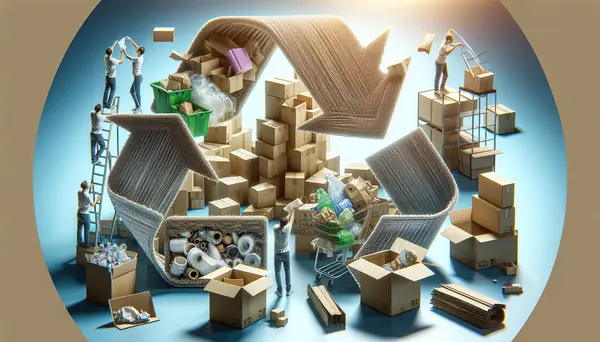
Effective Strategies to Minimize Packaging Waste
Understanding the Importance of Minimizing Packaging WasteIn an increasingly consumer-driven society, the growing problem of packaging waste cannot be ignored....

Understanding Packaging HSN Codes
Introduction to Packaging HSN CodesWhen it comes to the realm of packaging, understanding the complexities and details can often be...
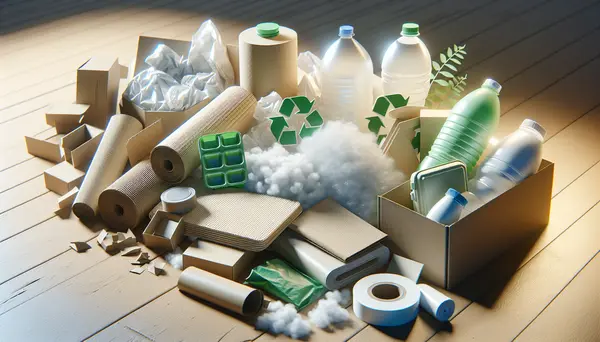
Sustainability in Packaging Design
Introduction As environmental concerns continue to gain prominence in public and corporate consciousness, the topic of sustainability in packaging design has...
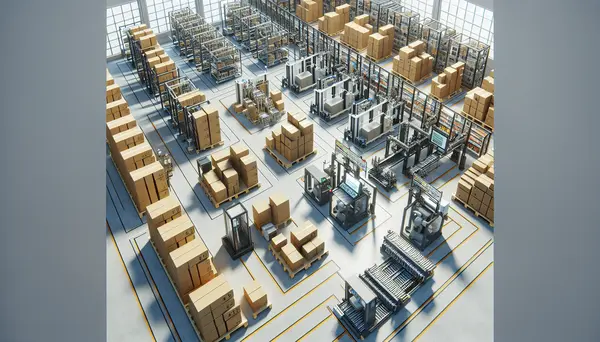
Efficient Solutions for Managing a Packaging Warehouse
Understanding the Basics of a Packaging WarehouseFirst things first, let's delve into the basics of a packaging warehouse. Essentially, a...
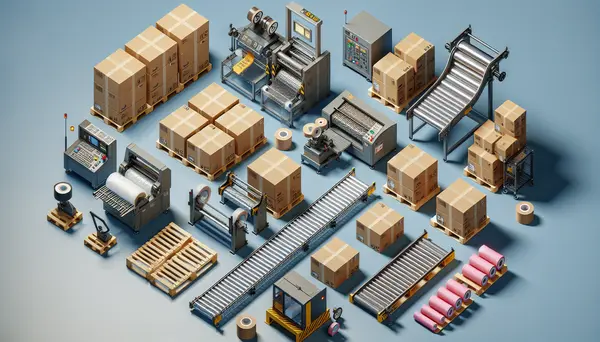
Industrial Packaging Production: A Cornerstone of Modern Manufacturing
Introduction Packaging is an indispensable part of any industry, providing a protective shield for products during their journey from the production...
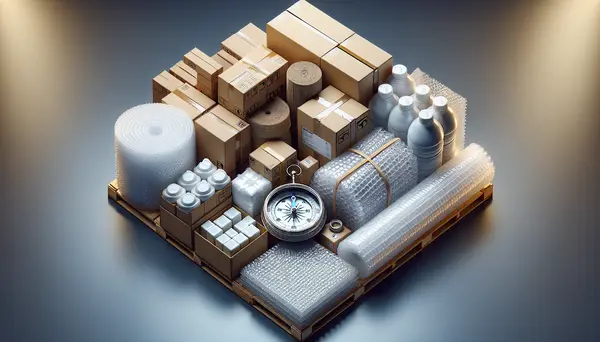
Navigating Packaging Regulation: Compliance and Industry Insights
Understanding Packaging Regulation: A Brief OverviewThe world of packaging regulation can be a complex maze to navigate. However, understanding these...
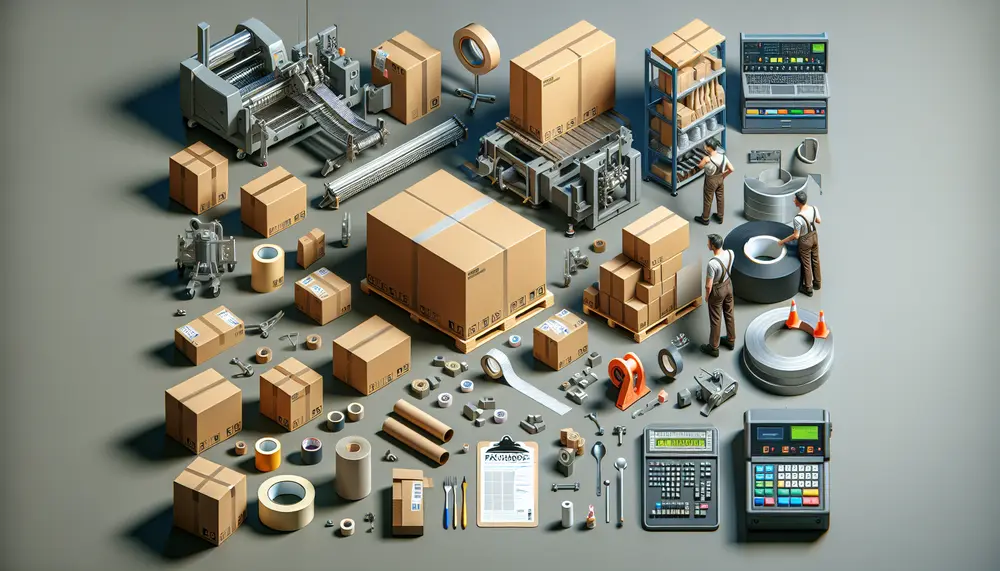
Becoming a Packaging Operator: Skills and Responsibilities
Introduction to the Role of a Packaging OperatorStarting a career in the packaging industry can be an exciting opportunity, especially...

Negotiated Price vs. Demand Quantities: A Detailed Examination
Price negotiation and demand quantities are two significant factors affecting both the supply and demand of goods in the market....
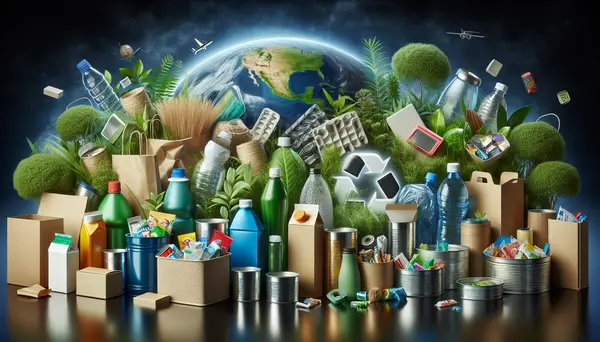
Recycling in Packaging: A Sustainable Approach for a Greener Future
Introduction Packaging is an integral aspect of every product that we consume or use. However, the growth in consumerism and the...
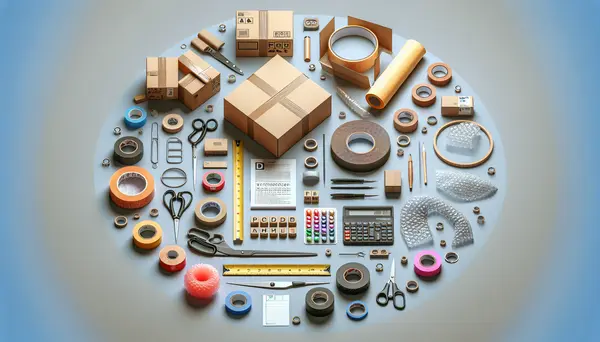
The Cornerstones of Effective Packaging Design: Key Rules to Consider
Introduction Packaging design is far more than a mere protective cover for a product. It is a potent communication tool that...

